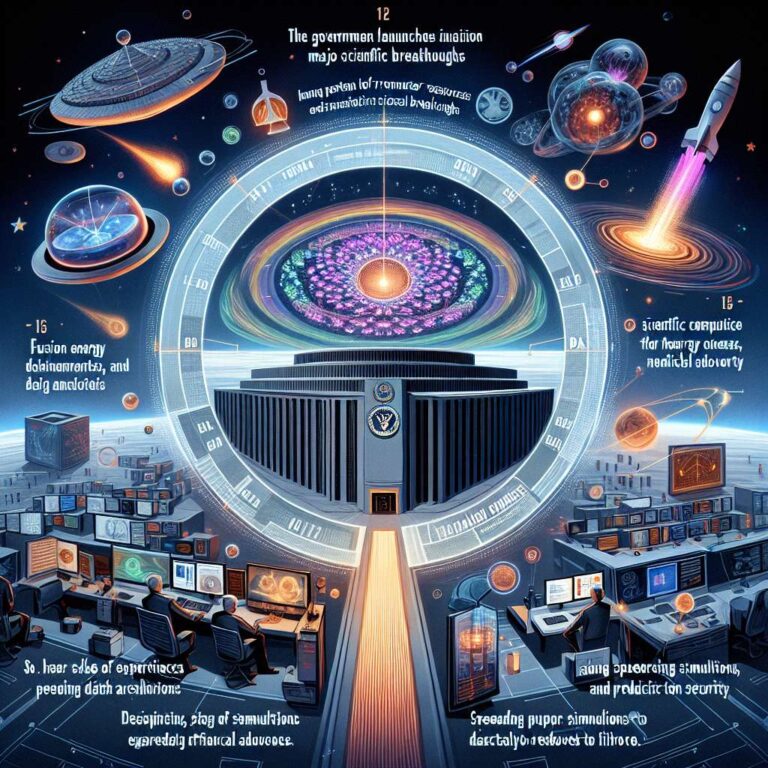On Monday President Donald Trump signed an executive order that launches a federal effort dubbed the “Genesis Mission” to accelerate science using Artificial Intelligence. The order explicitly frames the race for global technological dominance as “comparable in urgency and ambition to the Manhattan Project.” It does not set a defined budget for Genesis and arrives at a moment when federal agencies have seen “massive cuts to research grants and funding.” The order highlights national security, scientific discovery and energy innovation as top priorities and names federal scientific datasets managed by NASA, the National Institutes of Health and other agencies as central resources. Together these repositories amount to “many billions of measurements, images and computer simulations” spanning the deep ocean, outer space and the human genome.
In a press call science adviser to the president Michael Kratsios called the Genesis Mission “the largest marshaling of federal scientific resources since the Apollo program.” The administration says the mission will use Artificial Intelligence to automate experiment design, accelerate simulation and generate protective models from protein folding to fusion plasma dynamics, shortening discovery timelines from years to days or even hours. The Department of Energy has been given a series of near-term tasks: it has “60 days” to identify “20” high-priority challenges, “90 days” to catalog computing resources, “120 days” to set out a plan for harnessing data from federal and external research sources, and “270 days” to demonstrate progress on at least one identified challenge. Top scientific targets listed include fusion energy, advanced nuclear reactors, electric-grid modernization, new materials, quantum computing and lifesaving medicines, and a central goal is “to double the productivity and impact of American research and innovation within a decade” by augmenting, not replacing, human scientists.
The Department of Energy lists private-sector collaborators including Nvidia, Anthropic, OpenAI, Advanced Micro Devices, Amazon Web Services, Microsoft, IBM and Google, though the order and DOE materials do not specify exact contributions or a programwide cost. The article notes that given the vast sums already flowing into Artificial Intelligence, the ultimate expense of Genesis and the roles of listed collaborators remain unclear, even as the administration sets timelines and priorities intended to concentrate federal computing and data assets on a short list of high-impact scientific challenges.

